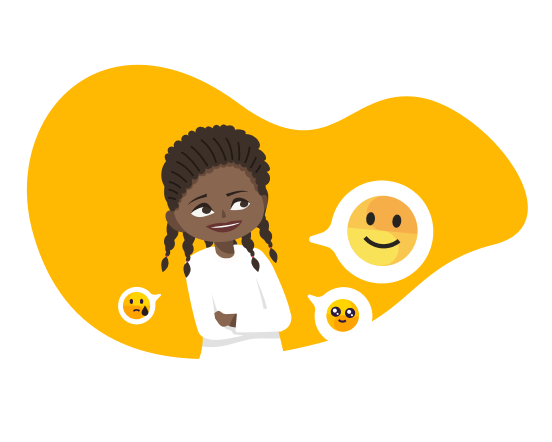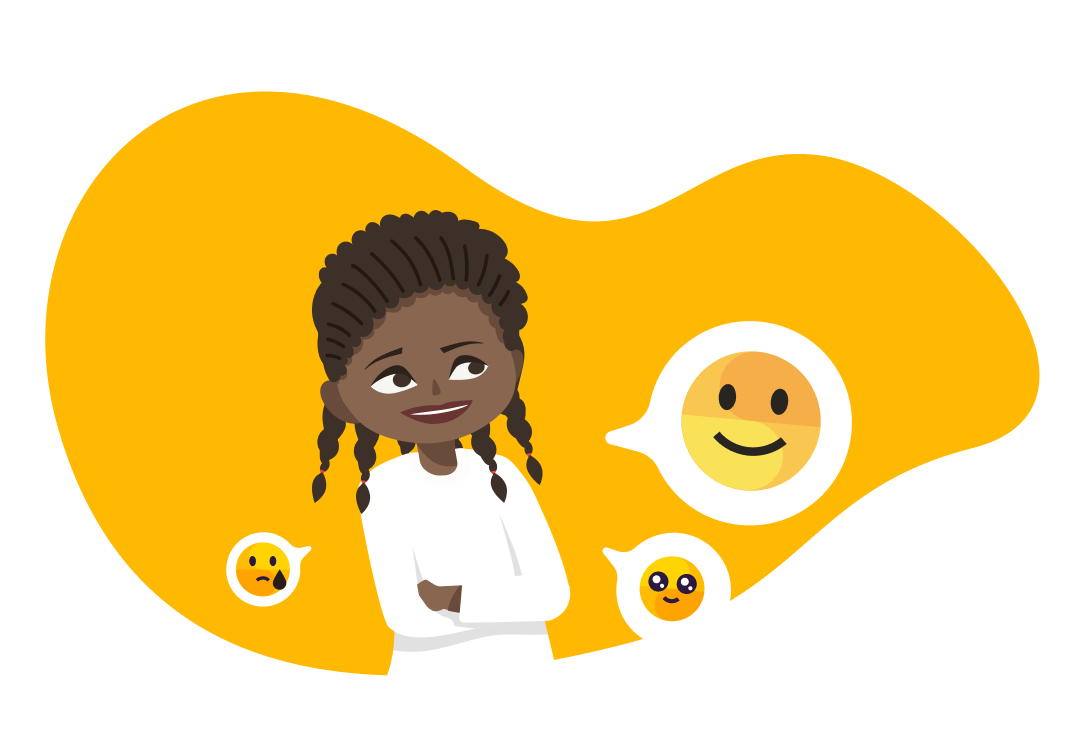
EQ versus IQ: what is more important?
Emotional Intelligence, or emotional quotient (EQ), is an individual’s ability to identify, evaluate, control, and express emotions. High EQ helps to understand people around us, empathize, and communicate with others better. That’s why a person with high EQ can succeed and become a leader easier.
There’s also another term, IQ, or intelligence quotient, that is a score received from standardized tests that demonstrate an individual’s intelligence.
IQ determines academic abilities: it shows how well a person can learn, demonstrating some mental skills. EQ is a better indicator of success in life because it helps to recognize leaders, team players, and people who can work in a group. After all, a high EQ means highly developed communicative skills.
EQ, as well as IQ, is vital for a person’s socializing, but…
What’s more important — IQ or EQ?
It’s a difficult question but don’t forget that a high IQ means you can study well at school/college/university, but a high EQ means you’ll be able to go through life well. To be smart doesn’t mean that one will be able to associate with people around. Sometimes people who know a lot and can remember a lot of different information simultaneously are not sociable or even egoistic, selfish that’s why they have difficulties in social life.
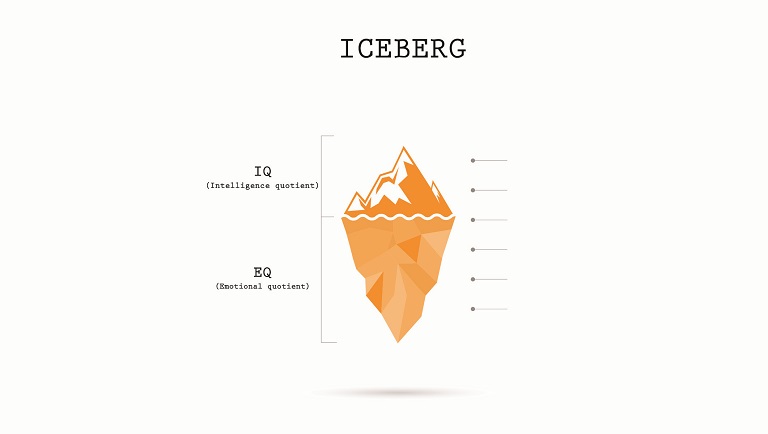
These two abilities — to study well and communicate well — are connected in some way, but they aren’t the same, of course. Can they be measured? Yes, but tests for finding out EQ and IQ aren’t also the same.
Measurement and testing IQ and EQ
IQ tests are more objective. For example, American psychologist David Wechsler developed three IQ tests; for preschool and primary school, for older children and for adults. Factor analysis determines the result in these tests. The tests of IQ are in use, but nobody can say that one of the commonly used IQ tests is the most accurate or even the best. No doubts that measuring IQ is easier than EQ because such measuring is based on numbers and counting. IQ is measured by checking math and reading skills, vocabulary and reasoning abilities that are easier to demonstrate and quantify.
Measuring EQ is more subjective, and in spite of this fact, there are several standardized tests that measure emotional intelligence. For example, Mayer-Salovey-Caruso Emotional Intelligence Test offers questions connected with the solution of different problems based on a person’s emotional world. Another test, Goleman’s model, focuses on emotional competencies. In fact, EQ tests don’t measure or quantify because they propose not figures or facts and don’t check our skills but find out emotional abilities.
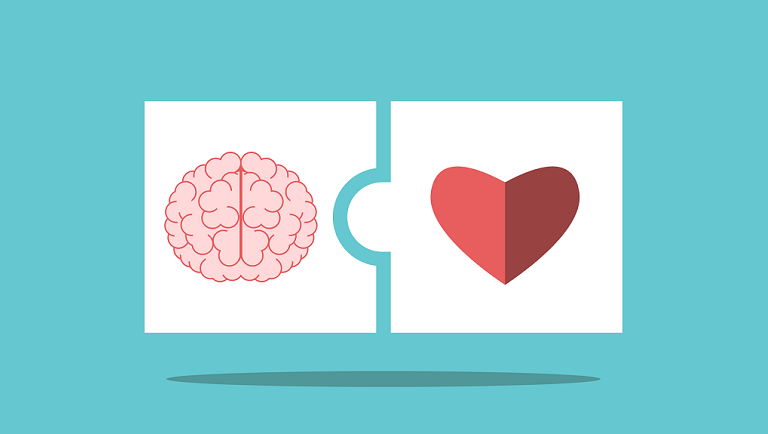
EQ test includes aspects that differ from parts of IQ tests: EQ test researches emotional intelligence: empathy, the ability to navigate emotions, emotional literacy. Of course, it’s not so objective as measuring numbers in mathematic tests. Still, nowadays, more schools also check EQ, as well as IQ, because emotional abilities are not less important for the future successful life, interpersonal relationships, and future academic and career success as we always use our social and emotional skills.
EQ’s importance was properly studied in the XX century. It was approved that emotional intelligence is connected with future success in different aspects of life: in relationships, health, and quality of life in general. It’s been demonstrated that children with high EQs get better marks and make healthier choices in life (don’t smoke or drink alcohol); teachers also say that students with high EQ are able to be leaders in the group. Developing emotional intelligence helps to prevent bullying. A high EQ can help career success not less than a high IQ or even more than that.
But empathy is not the only thing that is included in EQ. The emotionally intelligent child can also name his or her own emotions accurately, regulate them and control reactions to them. Such children can express anger or disappointment in words, and they can think of ways to let off emotions rather than throw things against the wall. Of course, that helps to socialize and communicate better, and it doesn’t depend on how well a child can count or read.
A child grows up, and EQ helps to gain correct motivation and regulation of emotions. Well-developed EQ manages making decisions, controlling stress, settling problems, and reaching aims. EQ helps to see all the social and emotional traps, and a person is getting ready for life as an adult.
In this case, there’s also one more important question: can EQ be developed? Or it’s something that you get from your birth and cannot change?
Don’t worry — yes, you can train it! IQ is static, but EQ can be developed from childhood. But a child needs teaching and practice to master the EQ skills, and adults (parents and teachers) support a child on this way.
Can we teach EQ?
Of course, children are born with some components of their personality, but they also learn a lot. A person’s nature can be brought up.
One of the best ways to teach EQ is storytelling, where any form is possible: books with colorful pictures, oral stories, theatre (dramatic play), role-playing with toys, reading books for the roles. In all these activities, children learn to understand the world and society. Stories help them relate to a situation and learn how to live through events and express their emotions and feelings, how to be able to communicate with other children, to share their feelings, to be responsible and broad-minded. All these things are important because, through such activities, children learn that they are part of something larger than themselves and can grow over egoistic minds.
Getting social skills and emotional literacy is only the first grade in the process of teaching EQ: as children are progressing to social responsibility (we can call it “citizenship”), i.e., they learn to be a good community member in the class. For example, children can take part in some charity actions that encourage them to be responsible for others; or help parents at home or teachers at school to learn how to be respectful of others’ work.
Empathy begins when children realize that everybody has his own emotions, and it leads to a reduction of aggression: you can’t bully somebody or be hurtful to somebody if you understand and value another person’s feelings.
There was an experiment in a high school when a math teacher used the knowledge about EQ in his practice. The teacher started a lesson by asking the students how they were. Then they continued with some EQ exercises: for example, watching some video clips where difficult situations were shown. Afterward, they were talking about those clips, and finally, the teacher asked the students to write a short essay about a similar challenge from their own experience. After three months with such lessons, the relationships and communication in class became better, as well as the results of math tests. It also means that by focusing on social-emotional learning, one can actually succeed in studying and get better results in academic life.
We spoke about teachers but what about family and parents? What role do they play in EQ development?
What can parents do to develop EQ in children?
Parents can begin teaching emotional literacy to their children from the very beginning. In the early years, it’s very important for children to be able to realize what they’re feeling and be able to verbalize their feelings rather than act them out.
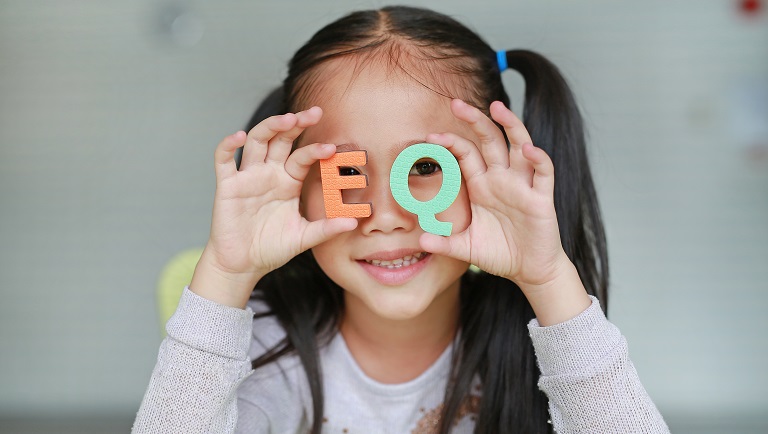
Before school, the crisis time for a child’s aggression is between two and five years; especially the peak is three years. Children can hit or bite, but it doesn’t mean they are aggressive because they don’t see how to show what they feel properly. Here, parents have an opportunity to help their children to give the name to those feelings and to cope with them. It’s possible to do this through playing with children or by moderating the play with other children.
But to do this, parents should also examine their own emotional intelligence because everything begins with self-studying. Parents won’t be able to develop EQ in their children if they aren’t emotionally developed themselves.
If a child’s crying and an adult says, “Don’t cry” or “Don’t be sad” — that’s not very empathetic. In such cases, the main thing is to slow down and try to understand what our children are feeling because before expressing the emotion, you need to realize what the emotion is. Parents usually tend to get off children’s feelings because they usually don’t know how to cope with them. They sometimes feel overwhelmed when children try to express what they are feeling. Sometimes parents think that they must do something or say something to calm their children down.
But the main thing here is not to do anything — only to keep silent for this moment and not devalue children’s feelings. Parents can also bring up their children’s emotional qualities through different games, reading stories and fairy tales with a strong emotional component, painting — a child can express what he or she feels in drawing or painting. By the way, a child’s picture can show his view of some situations; and when a child retells stories and reasons for them, it’s also very helpful in developing his own emotional inner world.
EQ means much in future life and future career as it plays a significant role in successful communicating and relationships, but one must develop it from the very beginning, early childhood, in different ways.
A lot of researches on EQ demonstrate a major change in approaches to a person: nowadays, employers more often test the EQ of applicants. So EQ, together with IQ, will help to gain future success in life.

new engaging articles


